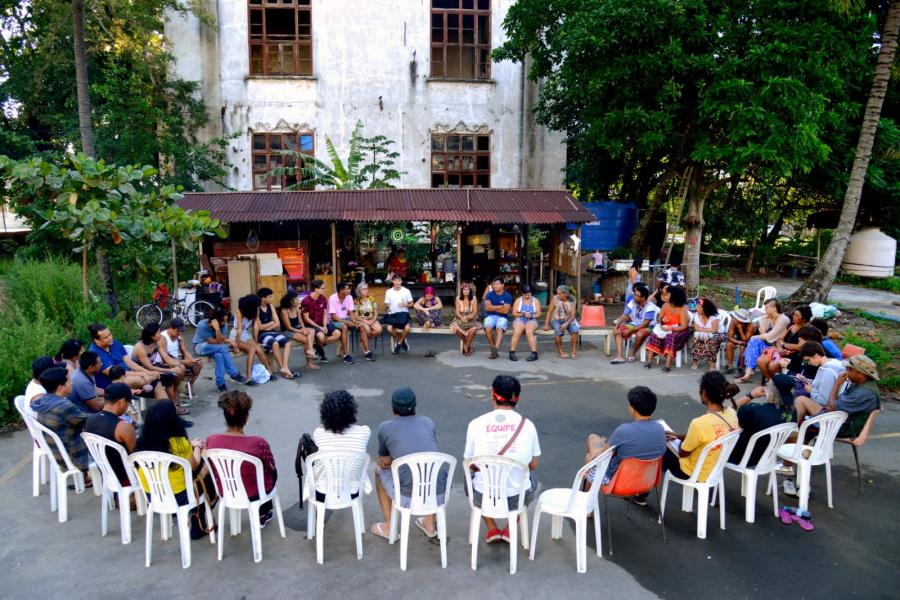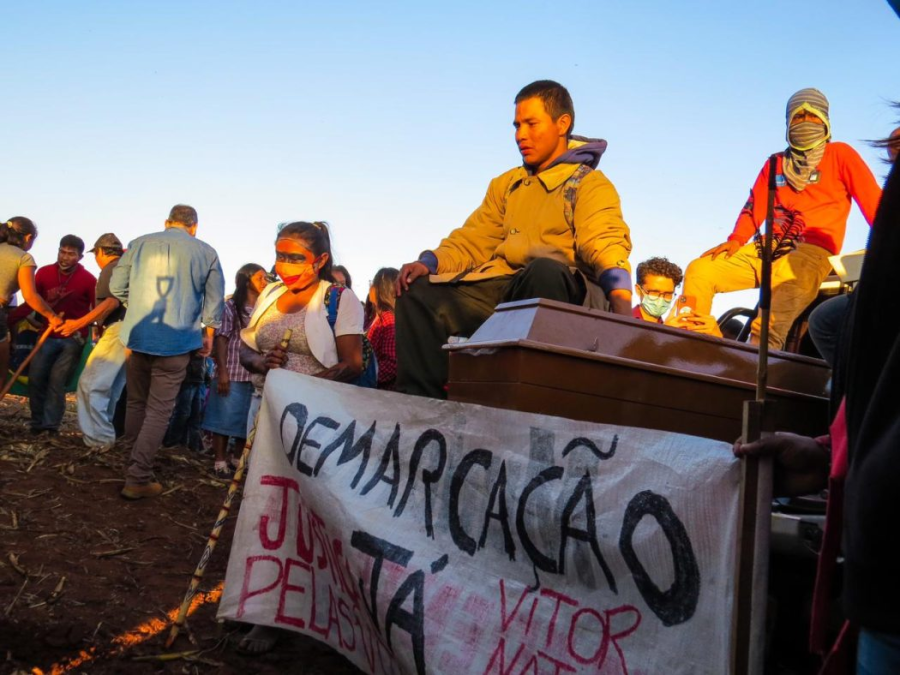
For Indigenous Peoples, gender has always been transcendent and fluid, interconnected to our lands, languages, cultures, spiritualities, and worldviews. The separation occurred during colonization and acts of genocide that regulated sexuality with the aim of eliminating gender diversity in Indigenous communities. There is evidence in historic records of gender diversity, along with imagery in hieroglyphics, shrines, temples, and pottery that reflected the realities of Indigenous Peoples’ daily practice and engagement with sexuality and gender diversity that was not a taboo, but the norm. However, the reality of today is a struggle for Indigenous people who identify outside the enforced colonial structures of gender, which violently systemizes and disables gender diversity identities while creating harmful environments and instilling fear in Indigenous communities. The discrimination, violence, and racism faced by gender and sexually diverse Indigenous people converts to social marginalization, isolation, and disconnection from cultural belonging. When the thread of connection to cultural roots is severed, one’s sense of belonging is fractured, and Indigenous affection to one another becomes repressed throughout generations.
The colonial framework of 2SLGBTQ+ has become an avenue for Indigenous people to restore the linguistic and cultural practices around concepts of gender diversity that have always existed. Indigenous people are recovering their gender identities through artistic expressions, storytelling, and media. There are some Indigenous communities that still function in clans where marriage is considered based on the diversity of genders and not by sexual orientation to strengthen their clan lineage; others have oral traditions where the protagonists are fluid beings depicted as a particular animal to reflect the importance of diverse genders in their communities.
In celebrating Pride month, it is important to acknowledge the historical struggle and active resistance of Indigenous Peoples in reclaiming their ancestral diverse gender identities. Cultural Survival staff recently spoke with Umussin (whose colonial name is Tiago) De Souza Moraes from the Desana Peoples from Novo Airão, Brazil. De Souza Moraes is a 2022 Cultural Survival Indigenous Youth Fellow from the “Pehkame Mashã” Fellowship Project focused on providing Indigenous youth the opportunity to reflect upon and share their experiences on various topics such as multiculturalism, biodiversity, and content creation in a virtual platform. De Souza Moraes shared about his experience as a bisexual person.
De Souza Moraes is studying computer science at Amazonas State University in hopes of making technology, information, and innovation accessible to his People. He also participates in the Student Movement of the Indigenous of Amazonas. He shares the struggles of inclusion in being bisexual, where he had to leave his community not only to pursue his studies at the university, but also for safety reasons.
"In my adolescence I was discovering my preferences and my gender,” De Souza Moraes says. “I always heard from family members and people in my community that being LGBT was horrible. I observed that they were mistreated and always treated with lack of respect, dumped by their families and community. At 18, I started my undergraduate studies at the Amazonas State University in the capital city of Manaus. Here I started a new chapter in my life, starting all by myself, with help from my inner self. I thought I would be more accepted the way I am, but it was totally the opposite. Besides being LGBT, I am still an Indigenous person at the University. I suffered, and still suffer prejudice."
De Souza Moraes says the rights and safety of 2SLGBTQ+ people in Brazil varies depending on the region. In some urban areas that are more progressive, 2SLGBTQ+ people are more accepted; however, in conservative rural regions, it can be more intense and there is an increase of intolerance. "In my town it is very difficult to see LGBT people, and this issue is not talked about much in the community. But it is not only in my community that this happens. Throughout Brazil, there is this difficulty of acceptance by society, and prejudice is always constant everywhere. I am still discovering myself every day and fighting for my space. I observe some Indigenous people, who, just like myself, are in pursuit of their rights. As this theme is little talked about in our people, there is still a resistance to forming a community," he says.
Although De Souza Moraes has faced resistance to acceptance, he continues to fight for visibility so that others like him can speak out and share their story to strengthen the rights of 2SLGBTQ+ in Brazil. Today, where he lives in Manaus, De Souza Moraes says he feels greater freedom to express himself openly as bisexual and to promote both his gender identity and his Desana culture, and offers a note of hope for others who may be in a similar circumstance: "Never give up on your dreams. Be the innovation of your people, and the change you and your community expects."



